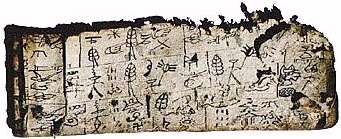Dialogue(対話)とDiscussion(議論)はまったく違うと理解したほうがよい。対話と議論もしくは討議を混同するとコミュニケーションがスムースにいかない。つぎの英文記述は、"Dialogue : Rediscover the Transforming Power of Conversation"の著者が書いたものであるが、元をたどれば物理学者のDavid Bohmが明確にしたことで、彼はDialogueの父ともいうべき存在である。さらに言うならば、20世紀後半の科学的思考法に大きな影響を与えたGeorge Polyaの"How to Solve It"に言及しなければならない。この本は、アメリカの著名大学(ハーバード、エール、プリンストンなど)を目指す中高生のバイブルのような存在である。これについては別項で触れたい。
さて、対話と議論の違いをひとことで言うとつぎのとおりである。
対話: これら複数の論点をどう組み合わせたら全体として新しい論点にできるだろうか?
I wonder how these pieces combine to create a whole?
議論: これら複数の論点の中でどれが正しいものなのか?
I wonder which of these is the right one?
(以下の日本語解説は別途)
It is often useful to contrast Dialogue with a more familiar form of communication, discussion.
Discussion has the same Greek root as percussion and concussion, discus, meaning to throw, fragment, shatter. David Bohm likened discussion to an activity where we throw our opinions back and forth in an attempt to convince each other of the rightness of a particular point of view. In this process, the whole view is often fragmented and shattered into many pieces.
The intentions of dialogue and discussion are quite different and are contrasted below.
Dialogue Discussion
To inquire to learn To tell, sell, persuade
To unfold shared meaning To gain agreement on one meaning
To integrate multiple perspectives To evaluate and select the best
To uncover and examine assumptions To justify/defend assumptions


 飢餓海峡
飢餓海峡 Jonathan Byrnes (HBS DBA '80) writes The Bottom Line, a monthly column that details innovative methods for increasing profit from an existing business without costly new initiatives.
Jonathan Byrnes (HBS DBA '80) writes The Bottom Line, a monthly column that details innovative methods for increasing profit from an existing business without costly new initiatives. ノーベル平和賞を受賞したマータイさんの言葉に感動したというブログを米国サイトに書いたが、このサイトでは彼女の活動を讃えるために授賞式で引用された詩
ノーベル平和賞を受賞したマータイさんの言葉に感動したというブログを米国サイトに書いたが、このサイトでは彼女の活動を讃えるために授賞式で引用された詩





